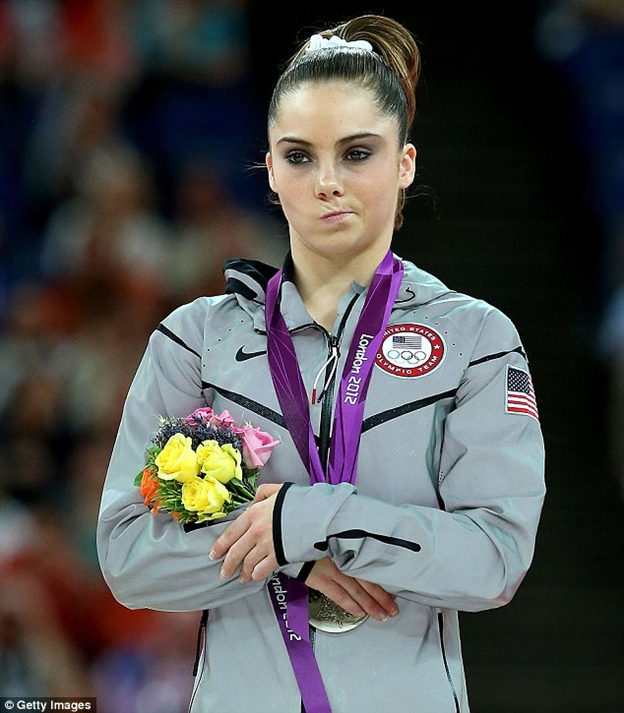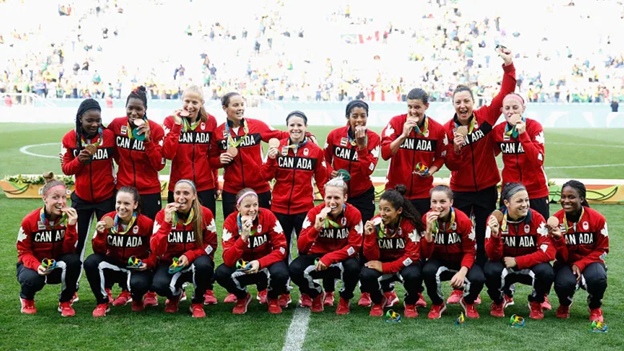You’d think that just getting to the Olympics would be a thrill of a lifetime, but it turns out that even for Olympic medal winners, some are happier than others.
Getting to the Olympics is an extraordinary feat. It is so challenging to qualify for the Olympics, only 0.0001% of the world’s population will ever get to represent their country at the games. This means that if the whole world’s population was represented by a 1 meter stack of paper, the amount of people who compete at the Olympics is about 1 sheet of paper high.
Sidenote: Interestingly, research has found that people are generally not aware of how hard it is to make it to the Olympics. This is likely because of something called the Availability Heuristic, which is a mental shortcut that takes place when evaluating how likely something is. We tend to substitute the ease at which it comes to mind, for example big or memorable moments, for actual probability of occurrence. As there is so much fanfare and attention on the Olympics, interviews with Olympians, faces on cereal boxes, we likely have an easier time calling to mind Olympians and therefore are left with the impression that they are just about everywhere, when really there really aren’t too many of them. Because of this, we underestimate our chance of getting to be an Olympian.
Girlfriend, you won a silver medal at the Olympics!! What is going on here?
The barrier for entry is very high, and often Olympians are putting as much time into training as they would a full time job. After all the blood, sweat, and tears, you would think that anyone who grabs one of those coveted medals would be ecstatic and over the moon. But it turns out some medalists are happier than others.
Silver Medal Face
It was the unimpressed face seen ‘round the world. American gymnast McKayla Maroney made an “unimpressed face” and left no one guessing about how she felt about getting a silver medal. Silver Medal Face was born and became a popular meme on social media.
A team of researchers wanted to find out if silver medalists truly were less happy and worked with a number of undergraduate students to analyze footage from the 1992 Olympics - both immediately after the win and later at the medal ceremony. On a scale from 1 - agony, to 10 - ecstasy, participants rated the happiness shown by each of the medallists. Right after the announcement of results, the silver medallists displayed an average of 4.8/10 whereas the bronze medallists displayed 7.1/10. WOW. Again later at the medal ceremony, the silver medalists displayed an average score of 4.3/10 and the bronze medalists showed happiness at an average 5.7/10 level.
Mika Sugimoto, silver (and gold!) medalist in 2012
Silver medal face was born.
Further research has found that although silver medalists mustered a smile at medal ceremonies, upon further analysis, they showed signs of being less genuine and more forced.
Triathlete Javier Gomez of Spain
How do we explain this reaction? Counterfactuals
Some researchers have proposed that medal winners compare their placement to a counterfactual: ‘what could have been’. Silver medalists
compare coming 2nd to what could have been - winning the gold - and that feels like a loss. Meanwhile, bronze medalists) compare their bronze medal to coming 4th and having no medal at all, which feels like a win.
Additionally, medalists might have had other expectations for themselves - specifically silver medalists were expecting to win gold, but didn’t, and bronze medalists weren’t necessarily expecting that they would be the gold medal winner.
Especially in team sport environments, where the final match comes down to two competitors where there is a winner and a loser, the silver medalists are literally the losers and the bronze medalists are literally the winners.
What can we non-Olympians take away from this?
Comparison is the enemy here. Focusing on your own journey and how you exceeded your own expectations along the way is a great way to build pride in your own journey. And if you are disappointed, it’s okay. Even Olympians who are being televised to many millions of viewers let their disappointment show sometimes.
And for us viewers of the 2022 Winter Olympics, we have a bit more to look out for about facial expressions at medal ceremonies - even if they are taking place behind masks!
Good luck!
Dr. D








